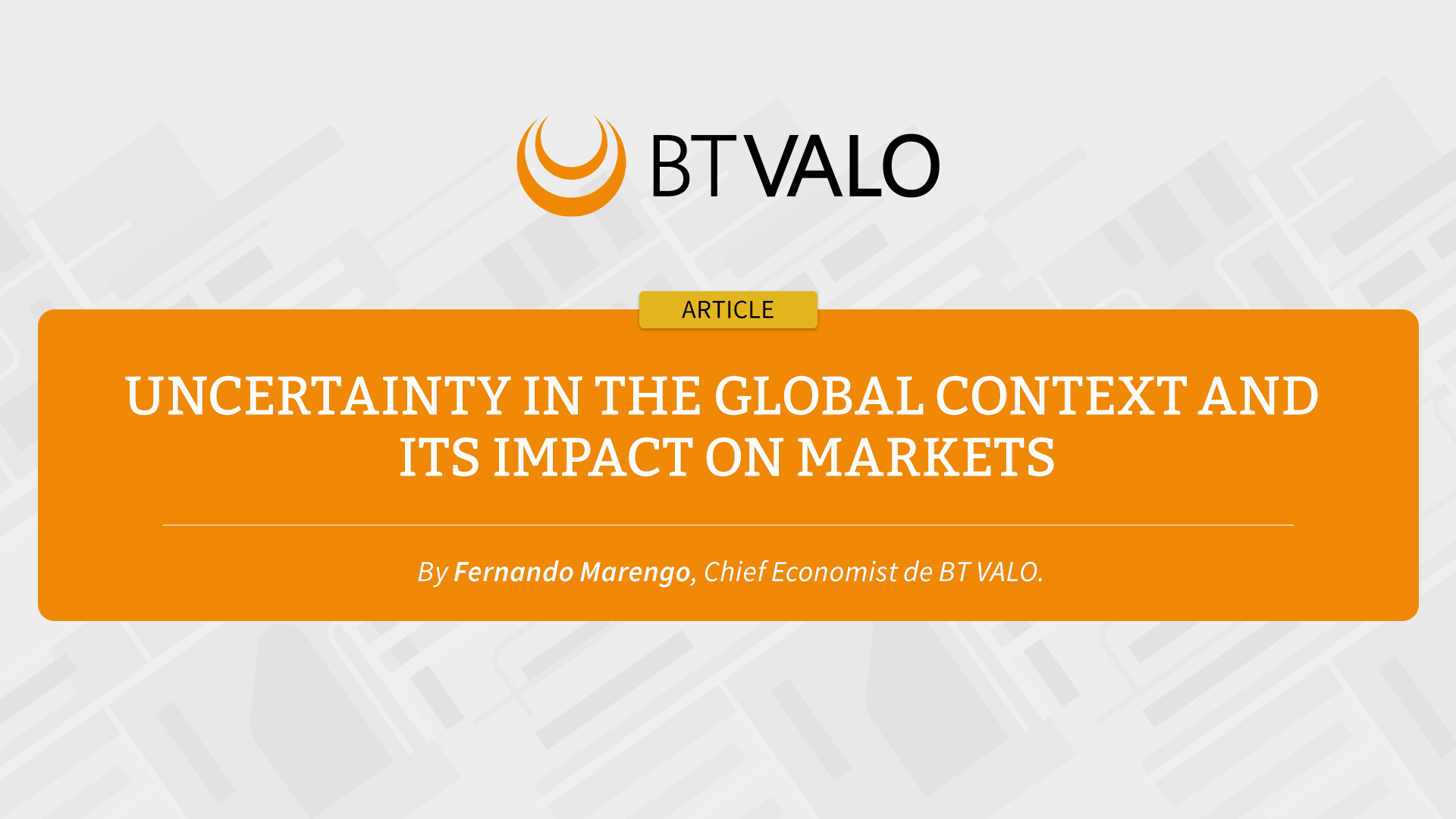By Fernando Marengo, Chief Economist at BT VALO

2025 has started off with intensity for Argentina’s economy. The economic program the government has maintained since late 2023—based on fiscal balance and an anchored exchange rate—has successfully slowed inflation, marking the beginning of a stabilization path. However, this year will not be without its challenges, particularly in the context of an election year and a volatile international environment.
What to Expect from Argentina’s Economy in 2025
The government appears determined to maintain fiscal balance, understanding that the election outcome will largely depend on what happens with the inflation rate. Fiscal adjustment and the reduction of the crawling peg to a 1% monthly rate since February are clear indications of this strategy.
If this policy is sustained, inflation could continue to decrease throughout the second quarter, reaching levels below 2% per month, and even dropping to around 1.5% in the second half of the year. This stabilization would also allow for a modest recovery in economic activity, though the levels of growth will remain moderate.
Exchange Controls and Investment Opportunities
Capital controls remain a significant restriction on the economy, especially in terms of investments. However, the current situation presents an interesting nuance: the monetization of the Argentine economy is at historic lows, which limits the potential for a massive flight to the dollar in the event of an exchange rate liberalization.
On the other hand, some investors are beginning to see Argentina as a long-term opportunity. With assets priced relatively low and the possibility of a shift in the economic model, interest is starting to rise. Nonetheless, a challenging global environment—with high interest rates in the United States and low commodity prices—adds an extra layer of volatility.
What Lies Ahead?
The big question for 2025 is whether the current economic program will remain intact despite the tensions of an election year. The key will be whether the government can maintain fiscal balance without resorting to populist measures.
Exchange rate stability and fiscal credibility will be crucial for consolidating the recovery and attracting investment. Otherwise, the cycle of growth followed by adjustment could repeat itself, as it has in previous years.
Stay tuned for our upcoming publications, where we will continue analyzing Argentina’s economic outlook and its implications for the capital markets.


